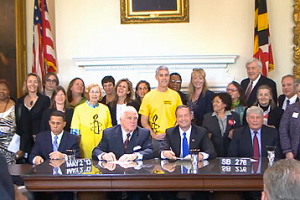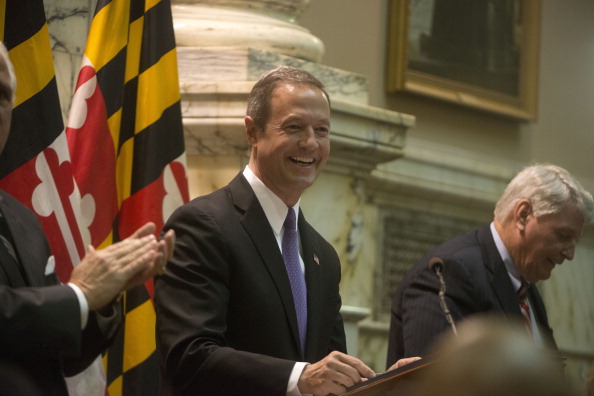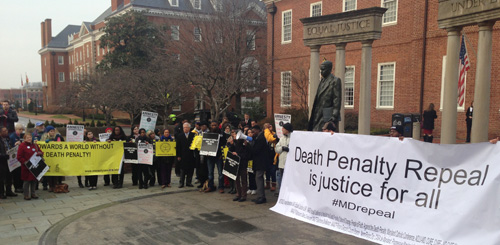
Amnesty International activists with Governor Martin O’Malley as he signed the death penalty repeal bill, making Maryland the 18th U.S. state to abolish capital punishment (Photo Credit: Amnesty International USA).
Maryland’s death penalty repeal bill has now been signed into law. Governor Martin O’Malley today made it official, but there is still work to do. There are still 32 states with capital punishment laws on the books, and there is the federal and military death penalty.
But while the U.S. will not be joining the ranks of abolitionist countries any time soon, the trend is certainly in the right direction, and more individual states will be repealing the death penalty in the near future, perhaps maybe even later this year.
The death penalty has gone from a third-rail political issue to one that is openly debated and hotly contested. As DNA technology has exposed the shortcomings of our judicial system, the public has become increasingly uncomfortable with the irreversible punishment of execution. Five Governors have now signed repeal bills since December 2007, and others, from states like Arkansas, Oregon, New Hampshire and Virginia, have publicly expressed a willingness to do so.






